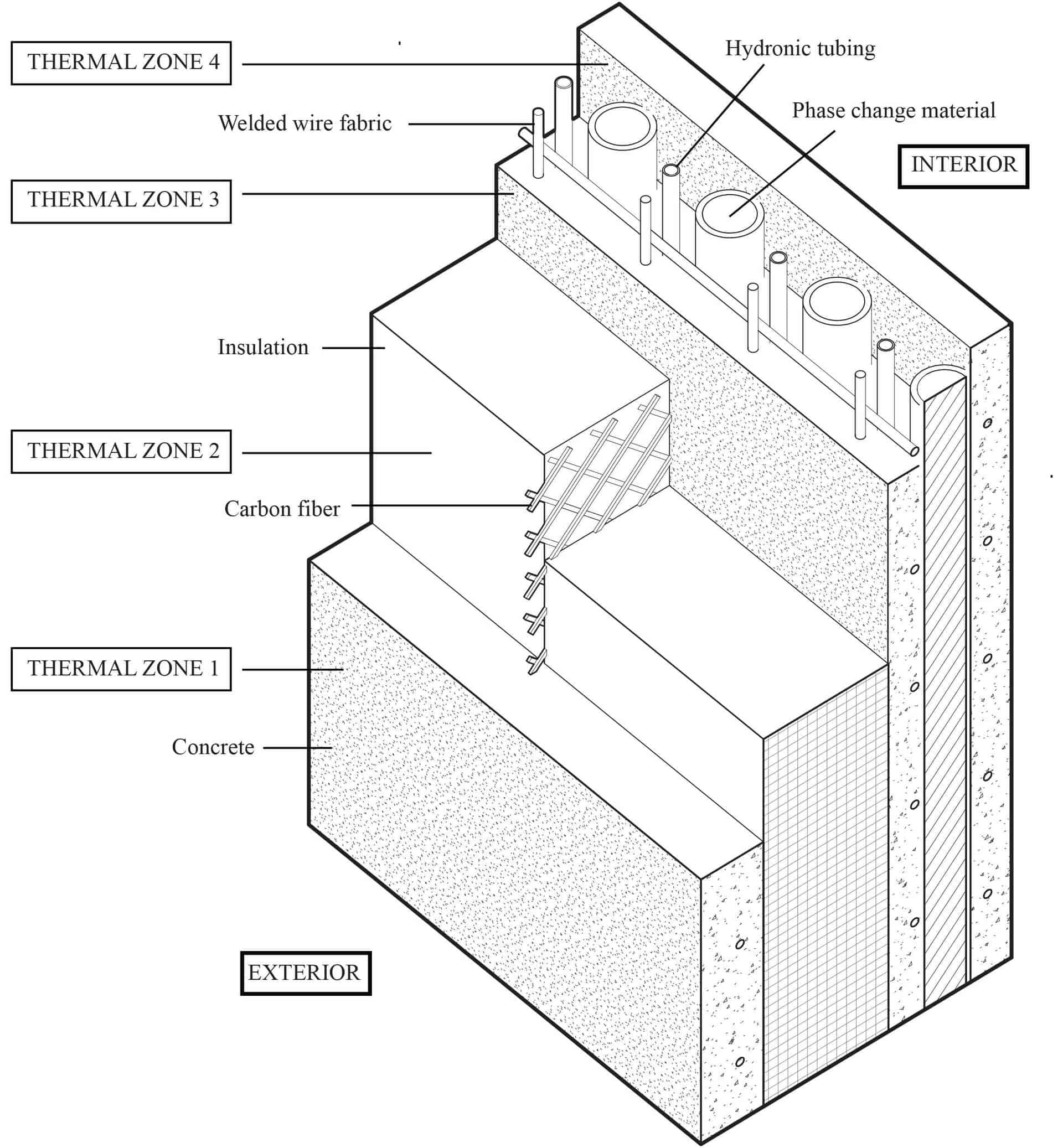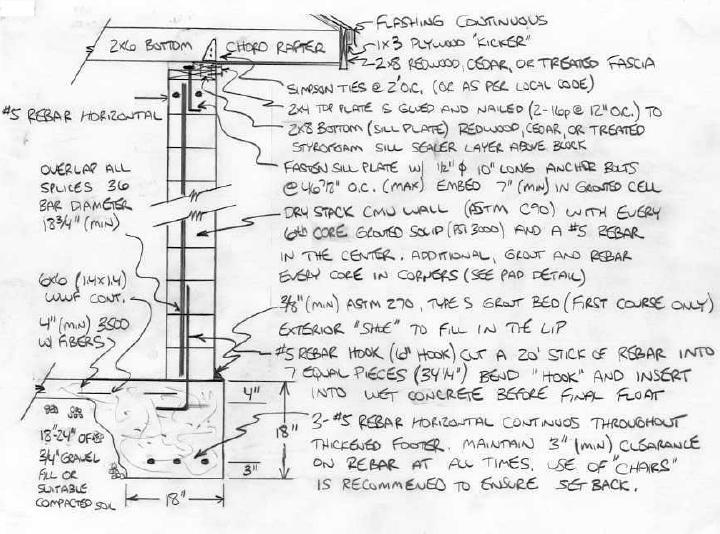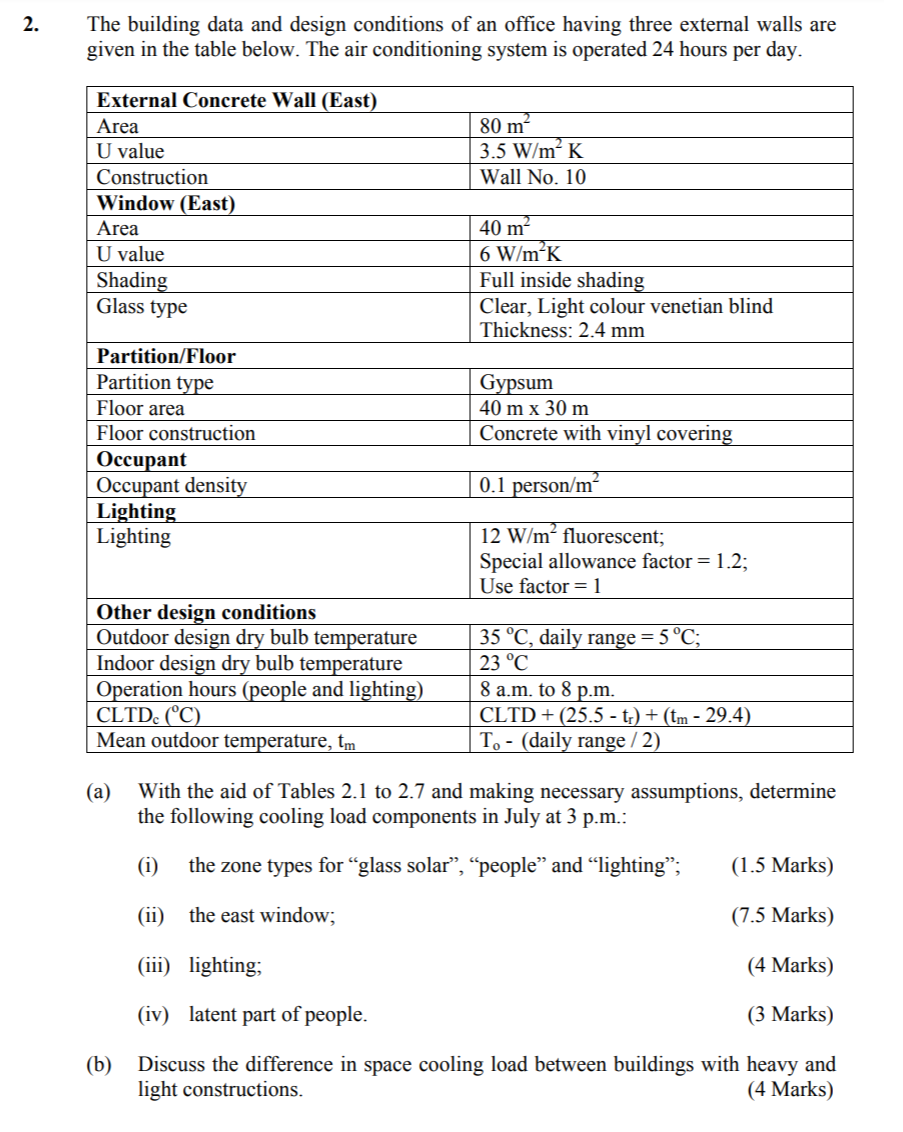Sensible Heat Load In For Concrete Walls

A added into the calculations because it is a large volume of energy and extremely valuable in reducing the total heating load.
Sensible heat load in for concrete walls. Using equation 5 the thermal resistance of the 4 inch concrete wall with 2 inch insulation is r 1 6 1 0 2 17 4 10 2 17 45 1 1 63 26 hr ft 2 f btu equation 2 gives the heat conducted through the wall area minus the window area assuming 8 foot high walls. Ashrae tables are for latitude 24 o n 36 o n or 48 o n which cover u. C added into the calculations simply because it is a valuable resource for heating. The heat gain from occupants is based on the average.
B neglected when doing heating load calculations because they are not dependable heat sources. In an air conditioned room sensible heat load and it all happened due to temperature different between body and room air. A surface area of wall or roof. A wall composed of concrete with external insulation has a higher storage capacity than the same wall with internal insulation.
Q sensible heat gain through wall or roof. Clf cooling load factor 2 2 heat gain due to human beings the human body in a cooled space involved cooling load of sensible and latent heat. We need to do load calculations in order choose equipment that will make an occupant comfortable and safe and to keep energy costs down. Sensible heat gain is directly added to the conditioned space by conduction convection and or radiation.
Wall or roof type. Notice that below grade walls below grade floors and floors on concrete slabs do not increase the cooling load on the structure and are therefore ignored. These are given below. Note that the sensible heat gain entering the conditioned space does not equal the sensible cooling load during the same time interval because of the stored heat in the building envelope.
Other sensible heat gains are taken care of by the hvac equipment before the air reaches the rooms system gains. Wall or roof exposure orientation. To start with fill the details given at the top of the form. A systematic method of evaluation to estimate heat loss sensible and latent heat gain.
Cltd cooling load temperature difference from ashrae table for a given. An account of the total heat flow into or out of a home depending on the time of year. This simple calculation is based on a rule of thumb that the specific heat of most concretes is very close to 0 21 btu lb ºf 880 j kg k. Such as a heat pump to upgrade the temperature level to satisfy the required heat load which also incurs higher investment cost.
Now that we have seen the various heat loads inside the room and also surveyed the room let us see one example heat load calculations for the residential building using the heat load calculations form shown below. East wall q 8x35 2 2 5x4 95 80 26 150 btu hr. Therefore for example a single wythe concrete masonry wall weighing 34 lb ft 166 kg m has a.














































